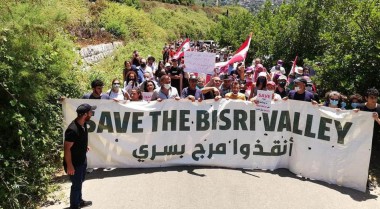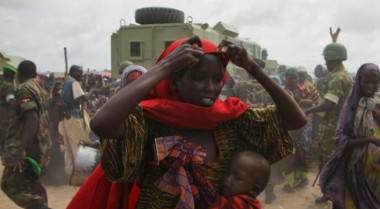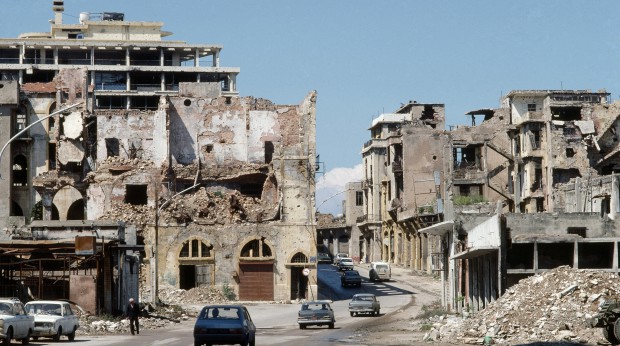
Peacebuilders in Lebanon Demand Justice
August 4 marked a significant turning point in Lebanon, as the country witnessed one of the biggest and strongest explosions to date when 2,750 tons of ammonium nitrate were ignited by a fire.
Human cost of the explosion
The explosion caused an unprecedented loss of life and damage to livelihoods. As a result, more than 200 are dead, 100 are missing (despite an ongoing search), and around 6,000 are injured, 120 of whom are in critical condition. There numbers of disabled and traumatized civilians are countless. The explosion also destroyed around 80,000 houses, institutions, pubs, and cars, affecting 300,000 families.
The explosion hit health infrastructure in Lebanon: four large hospitals were significantly damaged, leading to their partial or complete inability to function. Consequently, the health system became unable not only to support people injured by the explosion, but also to provide health services to address high rates of COVID-19. Medical warehouses containing medical devices to treat COVID-19 and other essential medical supplies.
Food security of all people, ranging from citizens and refugee groups, dramatically decreased. Given the fact that 85% of food is imported, entering the country via the port at the site of the explosion, the destruction of silos and containers in the port—and the port itself—will reduce the availability of food in Lebanon.
All this exacerbated an already suffering economy that is also facing a currency devaluation and hyperinflation, which reached more than 80% since October 2019. In addition, the gas produced by the explosion caused environmental harm by worsening pre-existing high levels of pollution.
With the Hassan Diab government resigning due to ongoing corruption and impotence when dealing with a major crisis, the political void left behind psychologically devastated the people of Lebanon.
We, the undersigned, believe the widespread killing of civilians, which resulted from sheer recklessness, could constitute a crime against humanity.
Recklessness of the government
According to Lebanon’s custom laws, no products that are highly explosive or related to explosives manufacturing can be stored in public warehouses. Unfortunately, after the products entered Lebanon on November 2013, there were no serious efforts by officials to either destroy or relocate them in light of the dangers they posed. Although the official port authorities were aware of the products’ presence and risks, including from several warnings from experts, the Lebanese government took no measures or actions to follow safety protocols.
Ongoing corruption, the lack of the rule of law, and the absence of the separation of powers between branches of government, which drove the October Revolution, have contributed not only to this catastrophe, but also to rising political divisions.
The lack of a crisis management unit further decreases the likelihood of adequate reconstruction in the aftermath of the explosion.
State responsibility and legal accountability
To date, the people of Lebanon have seen no official statement on the explosion or state responsibility. And due to the aforementioned pervasive corruption and mismanagement, people, including families of the deceased and victims, seriously doubt the credibility of any possible national investigation into this explosion. Lebanon has seen such corrupt investigations before. When Prime Minister Rafiq Hariri was assassinated in February 2005, the United Nations Security Council established the Special Tribunal for Lebanon. Unfortunately, Lebanese authorities could not collaborate as it should with the Special Tribunal; they could not arrest nor put in custody the four individuals who were accused and neither could the authorities arrest Salim Ayyash, who was accused to be guilty by the Special Tribunal on Tuesday, August 18th 2020.The political system, then and now, cannot and will not proceed with a transparent, just, and comprehensive fair trial.
We, the undersigned, urge the international community to take action to protect populations in Lebanon in the aftermath of this alleged crime against humanity, in accordance with the Responsibility to Protect (RtoP) norm adopted by the UN in 2005, by:
- Call on the international Lebanese led-probe and its constituent members, particularly the United States, France, and Germany, to identify, investigate, and prosecute the responsible parties, including:
- for the presence, transport, storage and treatment of the dangerous products, and
- as an alleged crime against humanity;
- Requesting and encouraging the international community, donors, and states to offer humanitarian support to the victims through neutral and efficient channels;
- Encouraging coordination mechanisms that enable the efficient participation of civil society, regional and international networks, and donors in Lebanon’s recovery efforts.



